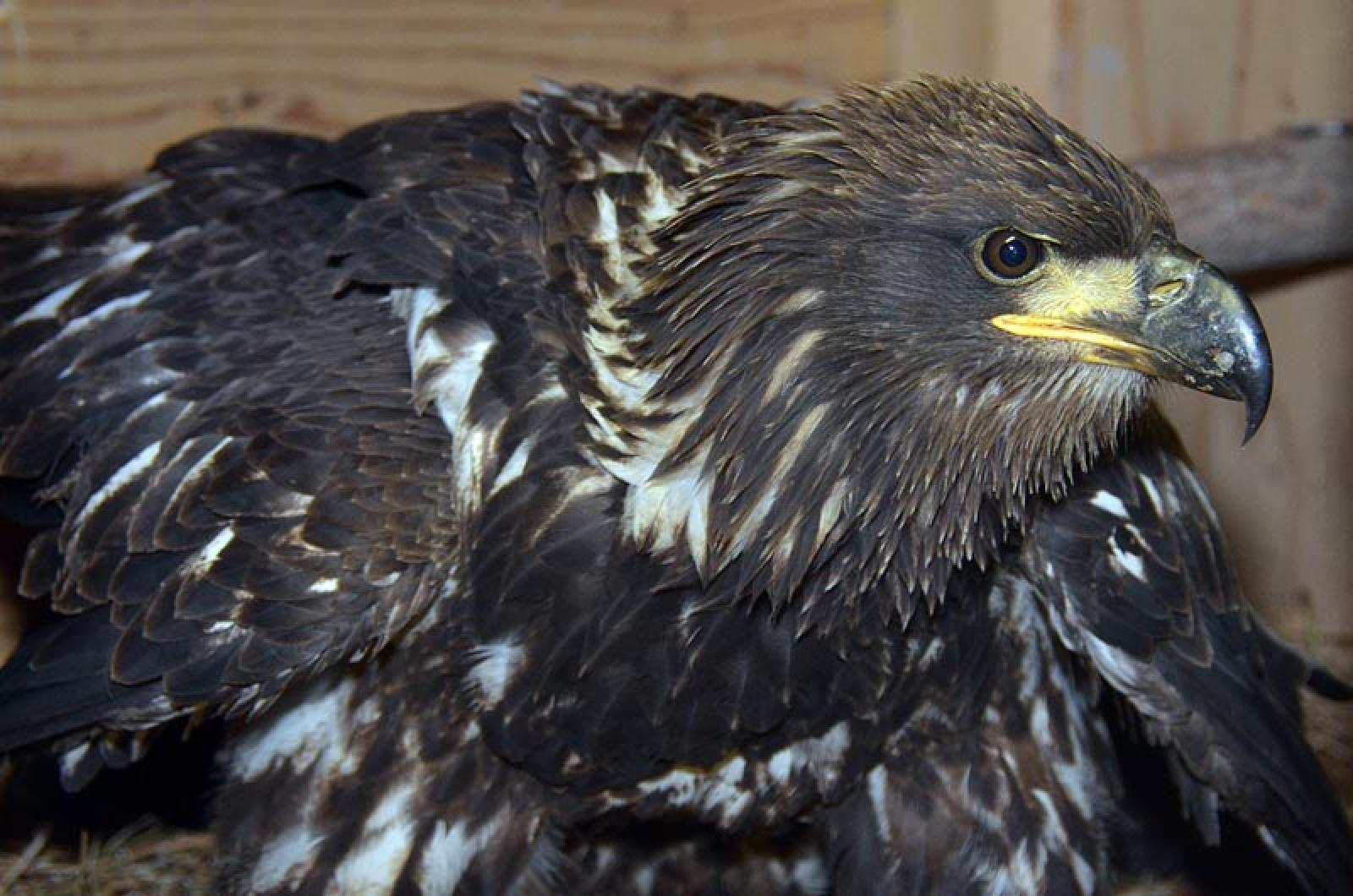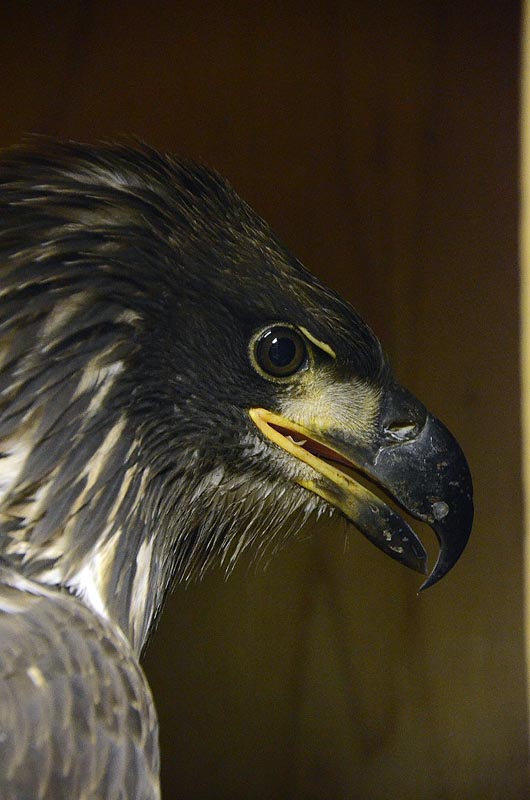It was a rainy afternoon in Edgartown on Wednesday when Gus Ben David received a phone call from Ken Galley asking to come over immediately. Although Mr. Ben David retired from the Felix Neck Wildlife Sanctuary in 2005, where he had been the orginal executive, he is still the first call for Island wildlife emergencies. And this was an extraordinary emergency.
Mr. Galley’s son, Noah Galley, had been carrying grain to the family barn when he saw a large bird flying in short bursts across the property. Using his smartphone, Noah quickly identified the bird as a juvenile bald eagle.
“It was strange because when we first saw it, we thought maybe it was here to eat our chickens,” said Aushra Galley, Noah’s mother. “We thought maybe we should let the dog chase him off but we didn’t want the bird to hurt our dog either because it was a big bird. It is much bigger than the dollar bill shows it.”
As the Galley family watched the bird and planned their next move, they realized that the eagle was very weak. The chickens squealed with fear as the eagle slowly flew across the field and eventually, unable to smoothly land, crashed into the wall of their neighbor’s home. Unsure of what to do, Mr. Galley called the Island communications center, where dispatchers in turn connected him to Mr. Ben David.
Mr. Ben David came immediately and by the time he arrived, the eagle had managed to perch in an oak tree.
“What Gus does is amazing,” said Mrs. Galley. “He went down there, he didn’t even have his gloves on or anything, and he just took his net and kind of knocked him out of the branch and the next thing we knew he was carrying the bird up to his truck.”
Although the eagle is now under the care of Mr. Ben David, the bird’s safety is far from guaranteed. There are strict restrictions on caring for bald eagles, a protected species, and as of Wednesday afternoon, Mr. Ben David was waiting to hear from state and federal authorities whether the bird would be rehabilitated on the Island or shipped to Tufts University to be cared for there. Mr. Ben David has recommended that the bird be rehabilitated here on the Island to avoid putting more stress on the weak eagle to transport it.
“I won't be able to tell you for eight to 10 days whether this eagle will start to gain weight, at which point she would be kept and then released and given a second chance at life,” Mr. Ben David said. “You increase their chances but it’s something that’s in the DNA and the genetic makeup. I always tell people that in nature, only the superlative survive. We give them a second chance and with that second chance sometimes the birds do catch on and survive. We try, but it’s not automatic.”
While bald eagles have been removed from the endangered species list thanks to tremendous conservation efforts, Mr. Ben David says that raptorial birds still suffer about an 80 per cent mortality rate in their first year out of the nest. Many young eagles, such as the one the Galleys found, fail to learn to properly hunt and prey on small animals like chickens, ducks, and occasionally even a small dog or cat before they starve. Mr. Ben David believes that if the Galleys hadn’t called him, this eagle would have been dead within six days.
While the eagle still has a tough fight to survive, there is reason to be hopeful for the bird. Just three years ago, Mr. Ben David was called to Chappaquiddick to rescue an eagle in a similarly dire situation. Mr. Ben David rehabilitated that eagle on the Vineyard, tagged it with a federal Fish and Wildlife band, and released it into the wild. As of now, the band has not been returned, which Mr. Ben David says is a very good sign.








Comments (10)
Comments
Comment policy »